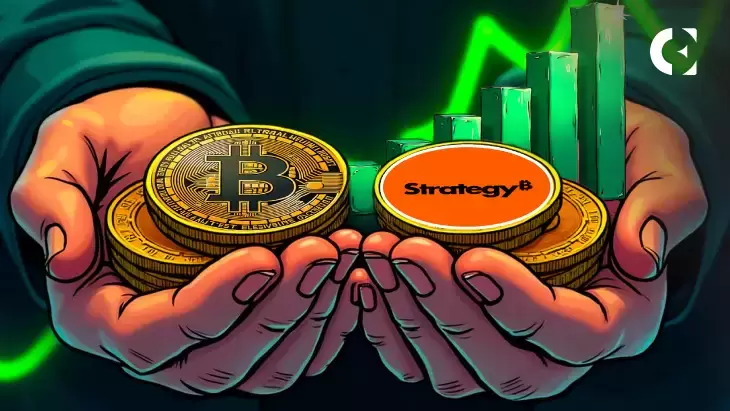 |
|
 |
|
 |
|
 |
|
 |
|
 |
|
 |
|
 |
|
 |
|
 |
|
 |
|
 |
|
 |
|
 |
|
 |
|
2025年3月17日、韓国銀行は、ビットコインをその準備に追加する可能性について最初のコメントをしました。

On Mar. 17, 2025, the Bank of Korea made the first comment about the possibility of adding Bitcoin to its reserves. According to the statement, the central bank of the Republic of Korea is not interested in acquiring Bitcoin, and it has never been.
2025年3月17日、韓国銀行は、ビットコインをその準備に追加する可能性について最初のコメントをしました。声明によると、韓国中央銀行はビットコインの取得に関心がなく、今までにありません。
Earlier this March, South Korea’s Democratic Party was urged to request the Bank of Korea to explore the potential of adding Bitcoin to its reserves following the move made by the U.S. government.
今年3月の初めに、韓国の民主党は、米国政府が行った動きに続いて、銀行にビットコインをその準備に追加する可能性を探求するよう要請するよう促されました。
The response from the Bank of Korea was negative. The main reason for the lack of interest is high volatility. According to the statement from the central bank’s rep, the BTC price trajectory can be compared to a roller coaster. As there is a potential for a price decline, Bitcoin cannot guarantee that it will provide an expected value in Korean won at any given moment. The reserve asset should be available and immediately usable by request, and it is denominated in a currency with a high credit rating. Bitcoin doesn’t meet the criteria for the reserve asset.
韓国銀行からの反応は否定的でした。関心の欠如の主な理由は、高いボラティリティです。中央銀行の担当者からの声明によると、BTC価格の軌跡はジェットコースターと比較できます。価格の下落の可能性があるため、ビットコインは、韓国語で期待される価値をいつでも提供することを保証することはできません。予備資産は利用可能であり、リクエストに応じてすぐに使用可能である必要があり、高い信用格付けのある通貨で派生されます。ビットコインは、予備資産の基準を満たしていません。
On top of this explanation, the Bank of Korea cited the reluctance of other countries to adopt Bitcoin as the national reserve fund. According to the bank’s statement, although Brazil and Czech had a positive experience of adding Bitcoin to their respective reserves, the European Central Bank, Switzerland, Japan, and others gave a negative assessment of the idea of using Bitcoin as a reserve fund.
この説明に加えて、韓国銀行は、他の国が国立準備基金としてビットコインを採用することを嫌がることを引用しました。銀行の声明によると、ブラジルとチェコはそれぞれの保護区にビットコインを追加する肯定的な経験を持っていましたが、欧州中央銀行、スイス、日本などは、ビットコインを予備基金として使用するという考えの否定的な評価を与えました。
It shows that despite many talks about the global crypto race, many countries take a conservative stance on Bitcoin and don’t seem to be eager to compete with the U.S. and other Bitcoin-holding nations. Leaders of these countries don’t fear missing out on something related to Bitcoin.
グローバルな暗号レースについて多くの話をしているにもかかわらず、多くの国がビットコインについて保守的な姿勢をとっており、米国や他のビットコインホールド国家と競争することに熱心ではないようです。これらの国の指導者は、ビットコインに関連するものを逃すことを恐れていません。
Crypto in South Korea
韓国の暗号
South Korea is one of the world’s largest economies and a crypto-friendly hubs. Crypto exchanges are legal and regulated there. Cryptocurrencies are not considered as money. The capital gains associated with crypto are free from taxation.
韓国は、世界最大の経済の1つであり、暗号にやさしいハブです。暗号交換は合法であり、そこで規制されています。暗号通貨はお金とは見なされません。暗号に関連するキャピタルゲインには課税がありません。
Before you come at South Korea, reminder the country imposes 0% capital gains tax in crypto so yeah they understand bitcoin pretty pretty well as well as the definition of a strategic reserve by the people, for the people
あなたが韓国に来る前に、国が暗号に0%のキャピタルゲイン税を課すことをリマインダーするので、彼らはビットコインをかなりよく理解しているだけでなく、人々の戦略的保護区の定義を人々のためにかなりよく理解しています
In the context of political uncertainty and high unemployment rates, the youth in South Korea lean toward cryptocurrencies as an alternative source of financial independence.
政治的不確実性と高い失業率の文脈において、韓国の若者は、金融独立の代替源として暗号通貨に傾いています。
More than that, the long-time public familiarity with micropayments (for instance, in social media and games) created a positive environment for embracing crypto. According to the 2021 survey, nearly 50% of Koreans in their 30s are crypto investors.
それ以上に、マイクロペイメント(たとえば、ソーシャルメディアやゲームで)に長年の公衆に精通していることは、暗号を採用するための前向きな環境を作り出しました。 2021年の調査によると、30代の韓国人のほぼ50%が暗号投資家です。
On top of that, South Korea is home to several vibrant crypto platforms, including Upbit, Bithumb, and HTX.
それに加えて、韓国には、Upbit、Bithumb、HTXなど、いくつかの活気のある暗号プラットフォームがあります。
So, it is clear that the rejection of Bitcoin as a reserve asset is not a continuation of cryptophobic policies but rather a cautious approach by the generally crypto-friendly administration.
したがって、予備資産としてのビットコインの拒否は、暗号恐怖症の政策の継続ではなく、一般的に暗号に優しい管理による慎重なアプローチであることは明らかです。
Why do other countries reject the idea of a Bitcoin reserve?
なぜ他の国はビットコインリザーブのアイデアを拒否するのですか?
The governor of the Czech National Bank introduced a proposal to spend billions on Bitcoin in order to diversify the reserves. Following this, European Central Bank President Christine Lagarde said that Bitcoin is unfit for the ECB reserve as it lacks enough safety and liquidity.
チェコ国立銀行の知事は、埋蔵量を多様化するためにビットコインに数十億ドルを費やすという提案を導入しました。これに続いて、欧州中央銀行のクリスティン・ラガルド大統領は、ビットコインは十分な安全性と流動性がないため、ECBリザーブには適さないと述べました。
Japan rejected Bitcoin as it doesn’t align with the national reserve strategy. Price volatility and incompatibility with the existing financial frameworks were cited as the reasons. The Swiss central bank cited similar reasons for rejecting Bitcoin. Swiss National Bank (SNB) President Martin Schlegel called crypto “a niche phenomenon” and said that high volatility and low liquidity block Bitcoin from becoming a reserve asset.
日本は、国家保護区戦略と一致しないため、ビットコインを拒否しました。既存の財務フレームワークとの価格のボラティリティと非互換性が理由として引用されました。スイス中央銀行は、ビットコインを拒否する同様の理由を引用しました。スイス国立銀行(SNB)のマーティン・シュレゲル大統領は、クリプトを「ニッチ現象」と呼び、高揮発性と低流動性がビットコインが予備資産になるのをブロックすると述べました。
Crypto bulls cite other reasons for Bitcoin reserve rejection in these countries. They suggest that officials in these countries simply don’s understand what Bitcoin is and why its inclusion in the national treasury may potentially be game-changing.
Crypto Bullsは、これらの国でビットコイン予備拒否の他の理由を挙げています。彼らは、これらの国の役人が、ビットコインが何であるか、そしてなぜ国債に含まれるのかを理解しているだけであることを単に理解していることを示唆しています。
Australian Reserve Bank governor Michele Bullock is a perfect example of such an official. In November 2024, she claimed that she didn’t understand Bitcoin but she didn’t see a role for it in the Australian economy or payment system.
オーストラリア準備銀行知事ミシェル・ブロックは、そのような役人の完璧な例です。 2024年11月、彼女はビットコインを理解していなかったが、オーストラリアの経済や支払いシステムでそれに対して役割を見ていないと主張した。
Other Bitcoin proponents suggest that countries like South Korea choose the wrong time to dodge Bitcoin. One of them wrote via X that “betting against Bitcoin in 2025 is like shorting the Internet in 2000.”
他のビットコインの支持者は、韓国のような国がビットコインをかわすために間違った時間を選ぶことを示唆しています。そのうちの1人は、Xを介して「2025年にビットコインに対する賭けは2000年にインターネットを短縮するようなものだ」と書いています。
Interestingly enough, the long-anticipated creation of the U.S. Strategic Bitcoin Reserve didn’t ignite the crypto market, nor did it set an immediate chain reaction in the world. Michael Saylor’s speeches explaining how important it is for any leading country to hold Bitcoin sound brilliant for some, but many conservative central bank officials around the globe are not buying them as they have strict criteria for the reserve assets, and Bitcoin doesn’t align with it. They don’t take the unique characteristics of Bitcoin into consideration.
興味深いことに、米国の戦略的ビットコインリザーブの長年にわたる創造は、暗号市場に火をつけず、世界で即時の連鎖反応をもたらしませんでした。マイケル・セイラーのスピーチは、主要国がビットコインのサウンドを華麗に保持することがどれほど重要かを説明していますが、世界中の多くの保守的な中央銀行の役人は、予備資産の厳格な基準があるため、それらを購入していません。彼らはビットコインのユニークな特性を考慮していません。
Such a stance paints the U.S. government and other Bitcoin-leaning nations as risk-takers. Time will show which approach was justified.
このような姿勢は、米国政府や他のビットコイン依存国をリスクテイカーとして描いています。時間は、どのアプローチが正当化されたかを示します。
免責事項:info@kdj.com
提供される情報は取引に関するアドバイスではありません。 kdj.com は、この記事で提供される情報に基づいて行われた投資に対して一切の責任を負いません。暗号通貨は変動性が高いため、十分な調査を行った上で慎重に投資することを強くお勧めします。
このウェブサイトで使用されているコンテンツが著作権を侵害していると思われる場合は、直ちに当社 (info@kdj.com) までご連絡ください。速やかに削除させていただきます。
























































